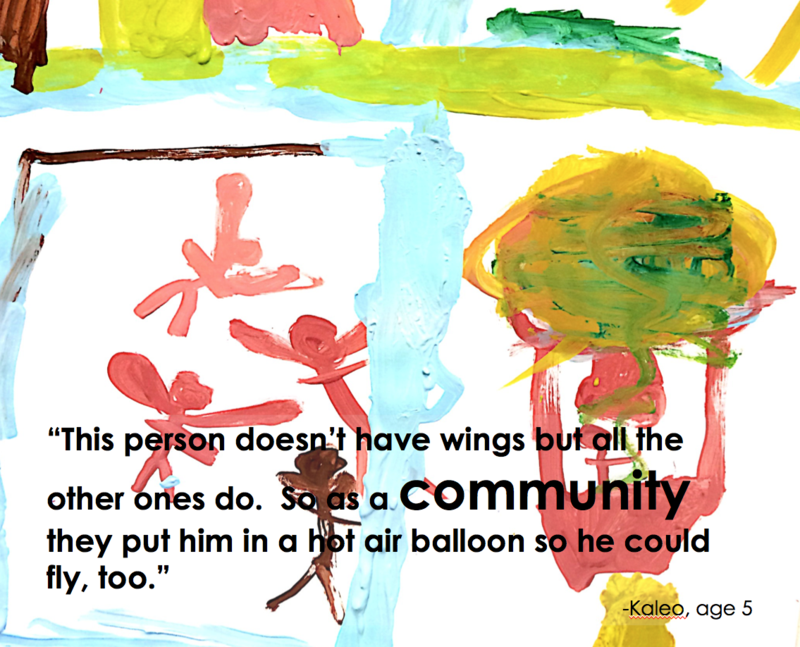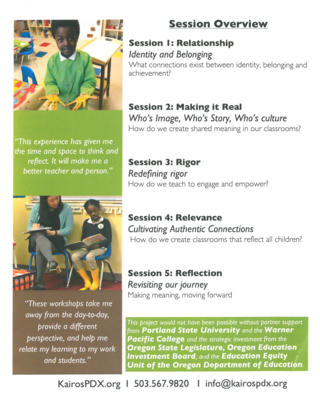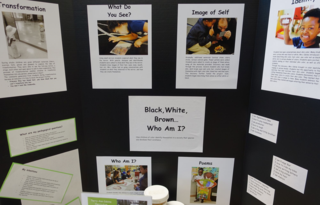Communities of Resistance – Where each member thrives

In a recent episode of This American Life, W. Kamau Bell struggles with how to talk to his young daughters about race and racism. As he grapples with the question, he finds great meaning in UC Berkeley professor Nikki Jones’ conception of dividing America into “White Space” and “Black Space.” Schools? White Space.
How can we create culturally relevant classrooms that support each child to bring their full selves to school? How can we teach in a way that prepares children to live in a world where culture is an asset – not a barrier to access?
 Over the last year, a group of kindergarten and first grade teachers across Portland have gathered to respond to these questions. The Community of Resistance Workshop Series, led by KairosPDX, brought together a group of 15 educators, including teachers from seven schools, a community educator, and district coordinators. Meeting five times, the group sought to define what it means to guide culturally relevant instruction and practice. The sessions were informed by scholarly texts, presentations, facilitated reflection, and teacher-research centered in the participants’ practice.
Over the last year, a group of kindergarten and first grade teachers across Portland have gathered to respond to these questions. The Community of Resistance Workshop Series, led by KairosPDX, brought together a group of 15 educators, including teachers from seven schools, a community educator, and district coordinators. Meeting five times, the group sought to define what it means to guide culturally relevant instruction and practice. The sessions were informed by scholarly texts, presentations, facilitated reflection, and teacher-research centered in the participants’ practice.
When the group gathered last Friday to celebrate their growth, participants told me about the experience and their growth. One told me about how the work led her to see her students with new eyes, driving her to find the time and space to let questions simmer – even within the relentless demands of a school governed by schedule audits. Another told me that she was struck by how the group moved quickly to tell personal, risky stories with space for counter-stories – and leading her to create the space in her classroom to try new approaches with a different frame. A third reported that, for her, it involved making values visible. All seemed united in the hope that this work will lead to change for all students in Portland, supporting children in ways that meet them where they are. Opal School Summer Symposium participants will get a glimpse of this work through a presentation offered by three of the teachers who participated in the program: Kairos’ Catie Dalton, Sunnyside Environmental School’s Levia Friedman, and Opal School’s Nicole Simpson-Tanner.
How are you creating a culturally responsive classroom that will lead to a culturally responsive society? What questions and ideas does this post spark for you?

